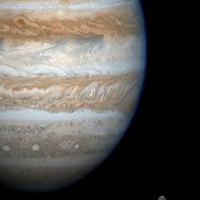メッセージ: 111
言語: Esperanto
sergejm (プロフィールを表示) 2020年4月19日 15:07:17
PrimeMinisterK (プロフィールを表示) 2020年4月20日 8:12:46
1. Tonight I started reading Tim Westover's short story collection Marvirinstrato. The first story is titled "Orfiŝeto kaj la Glacia Monto." It seems that Orfiŝeto is the name of the main character, but I am not understanding this name. It seems that orfiŝo means goldfish, and Seto is the Esperantized version of Seth. Should I read it as Goldfish Seth? Seth the Goldfish? Something else? Just chalk it up to a weird name?
2. I read today that country names originally ended in -ujo, but now -io is preferred, and -lando is also used. When I look up France at bab.la it gives me Francujo, Francio and Franclando. What is this nonsense? Why not just stick with -ujo from the start? Why all this tinkering with things, which doesn't meet the language's goal of being as simple and direct as possible?
3. Anyone have any book suggestions regarding the history of Esperanto?
Metsis (プロフィールを表示) 2020年4月20日 9:35:16
Sometimes the clever (in the author's opinion) names are not so easily understandable by the readers.
2. A FAQ, see for instance another discussion here in Lernu. Above all read the booklet by Anna Löwenstein (a link in the first posting in that thread).
3. Look up in Libroservo de UEA.
PrimeMinisterK (プロフィールを表示) 2020年4月20日 11:03:53
Metsis:1. Or-fiŝ-et-o : gold-fish-small-(noun)Oh, okay. I should've gotten that, because I just got done studying suffixes earlier today. I did not connect that lesson to this name though. I get it now. thanks.
Sometimes the clever (in the author's opinion) names are not so easily understandable by the readers.
Metsis:2. A FAQ, see for instance another discussion here in Lernu. Above all read the booklet by Anna Löwenstein (a link in the first posting in that thread).Okay, I'll give that a read later and them chime back in if I have some thoughts.
For now, I will just say that it seems like Esperantists were not, in many cases, entirely happy with the words and conventions that Zamenhof established and have tried to refine the language, in some cases doing their best to toss out old words in favor of new ones. In my mind, this just makes the language messier and not as clean as it should be.
Metsis:3. Look up in Libroservo de UEA.Well, I mean I know I can do that. But just looking up books in a catalogue doesn't tell me anything about their quality. I was wondering if anyone had any specific recommendations based on their own reading, or at least based on the book's reputation.
Balbutanto (プロフィールを表示) 2020年4月20日 13:50:58
PrimeMinisterK:3. Anyone have any book suggestions regarding the history of Esperanto?I liked Esther Schor's Bridge of Words -- Esperanto and the dream of a universal language. A good history of Esperanto, as well as an account of the author's experience with the movement. Plus, you can have fun spotting the mistakes she makes when giving examples en nia lingvo.
PrimeMinisterK (プロフィールを表示) 2020年4月21日 10:20:43
Balbutanto:Ordered! Thanks for the recommendation.
I liked Esther Schor's Bridge of Words -- Esperanto and the dream of a universal language. A good history of Esperanto, as well as an account of the author's experience with the movement. Plus, you can have fun spotting the mistakes she makes when giving examples en nia lingvo.
Less than $10 on Amazon!
Altebrilas (プロフィールを表示) 2020年4月22日 10:22:31
sudanglo:Kaj kio pri:
Pensu pri la diferenco inter Ĉu vi konas la urbon Parizo? kaj Ĉu vi konas Parizon, la ĉefurbon de Francujo?
Ĉu vi vizitis Novjorkon, la ĉefurbon de Usono, kaj Miamion?Esperanto ne estas komputila lingvo. En homaj lingvoj, oni ĉiam povas aldoni vortojn al dubsignifa frazo por esti bone komprenata.
Altebrilas (プロフィールを表示) 2020年4月23日 15:48:10
PrimeMinisterK (プロフィールを表示) 2020年4月24日 2:02:52
Altebrilas:Saluton, spama moŝto!Are these forums even moderated? If so, I have no idea who the mods are.
sergejm (プロフィールを表示) 2020年4月24日 2:23:14
But there is another question: how do spamaj moŝtoj get into the forum? I think they are robots, not alive men.



